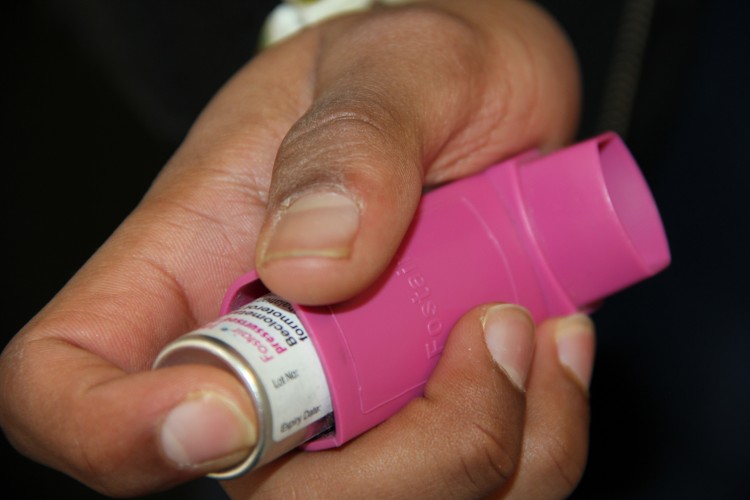The University of Leicester’s researchers have had a breakthrough and found a new way in which the lungs operate and respond to asthma attacks. They have identified a new process for preventing the narrowing of airways that could lead to new treatments for the disease.
Asthma is a common disease in the UK affecting 5.4 million and one in every 11 people. Asthma and other airway diseases such as chronic obstructive pulmonary disease (COPD) cause the airway muscles to contract, leading to the airways becoming narrow which then results in restriction to the flow of air in and out of the lung.

Researchers at the Leicester Respiratory Biomedical Research Unit at the University of Leicester and the Medical Research Council (MRC) Toxicology Unit have identified a new biochemical process that controls how air enters and leaves the lungs during normal lung function and during asthma.
The scientists – funded by the Medical Research Council (MRC) and working in collaboration with the National Heart and Lung Institute at Imperial College London, used state-of-the-art methods to dissect the biochemical pathways involved in the contraction of the airway muscle. By disrupting these biochemical pathways in a mouse model of asthma the scientists discovered that they could prevent airway narrowing and maintain normal lung function.
Co-lead author of the study Professor Andrew Tobin from the MRC Toxicology Unit at the University of Leicester said: “This is a real breakthrough in our understanding of how the lung works in both normal conditions and during disease. The fundamental biochemical process that we have discovered will ultimately allow us to better design ways to develop new treatments for those suffering from asthma and chronic obstructive pulmonary disease (COPD).”

The World Health Organisation estimates show that 235 million people worldwide currently suffer from asthma with over 80% of asthma deaths occurring in low and lower-middle income countries. The disease is predicted to increase worldwide over the next 10 years.
Dr Yassine Amrani, co-lead author from the University of Leicester’s Department of Infection, Immunity and Inflammation, added: “We have taken a major step forward in our understanding of how airways of patients with asthma tend to narrow excessively, a feature often encountered during severe forms of the disease. By uncovering factors responsible for this exaggerated bronchospasm, this breakthrough will lay the essential foundations on which to build new strategies to combat airway diseases such as asthma.”






